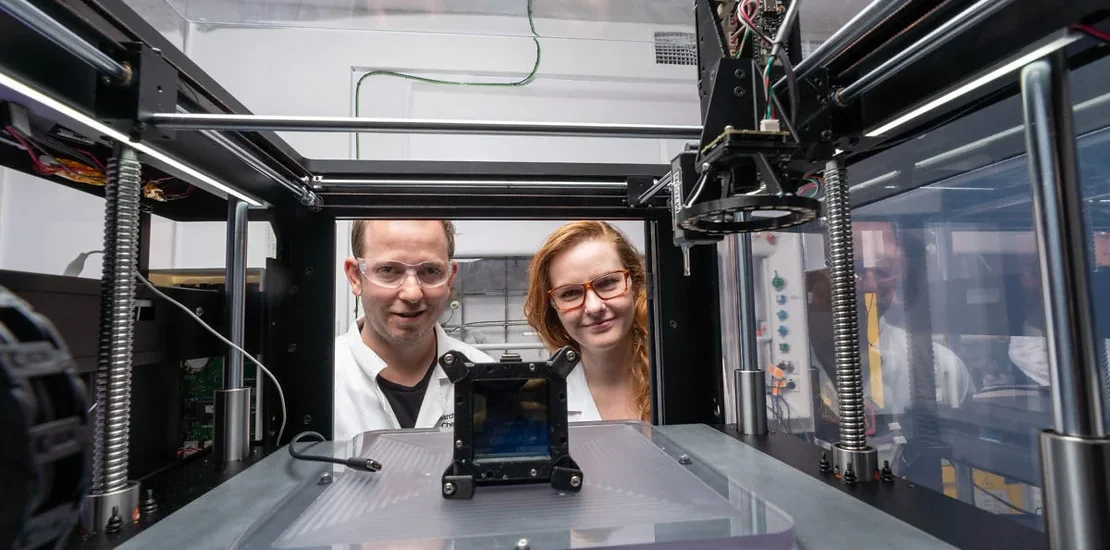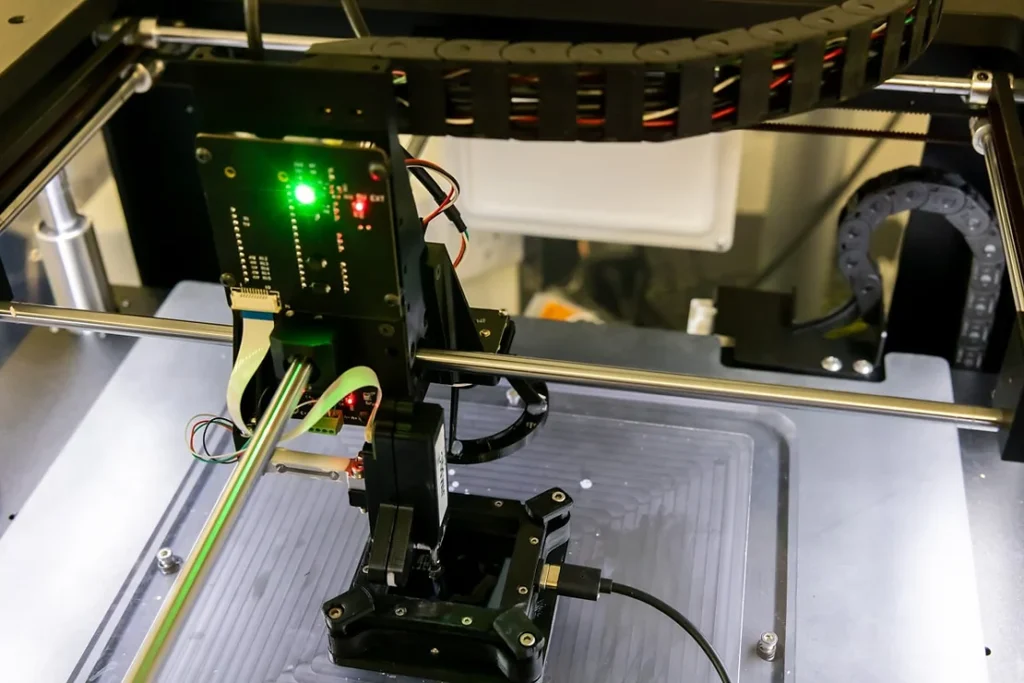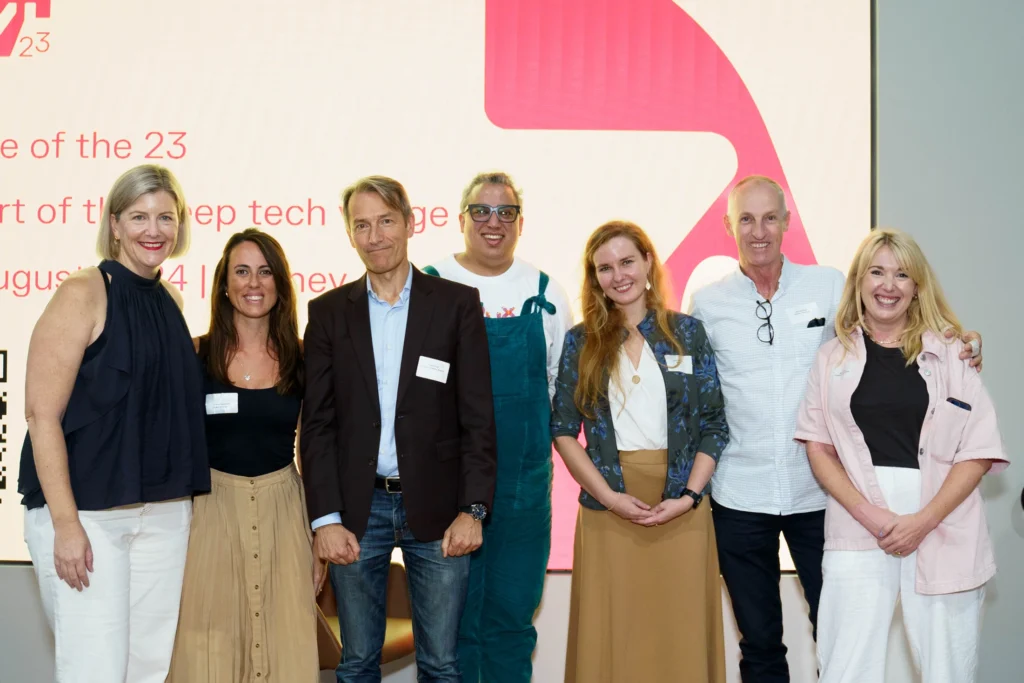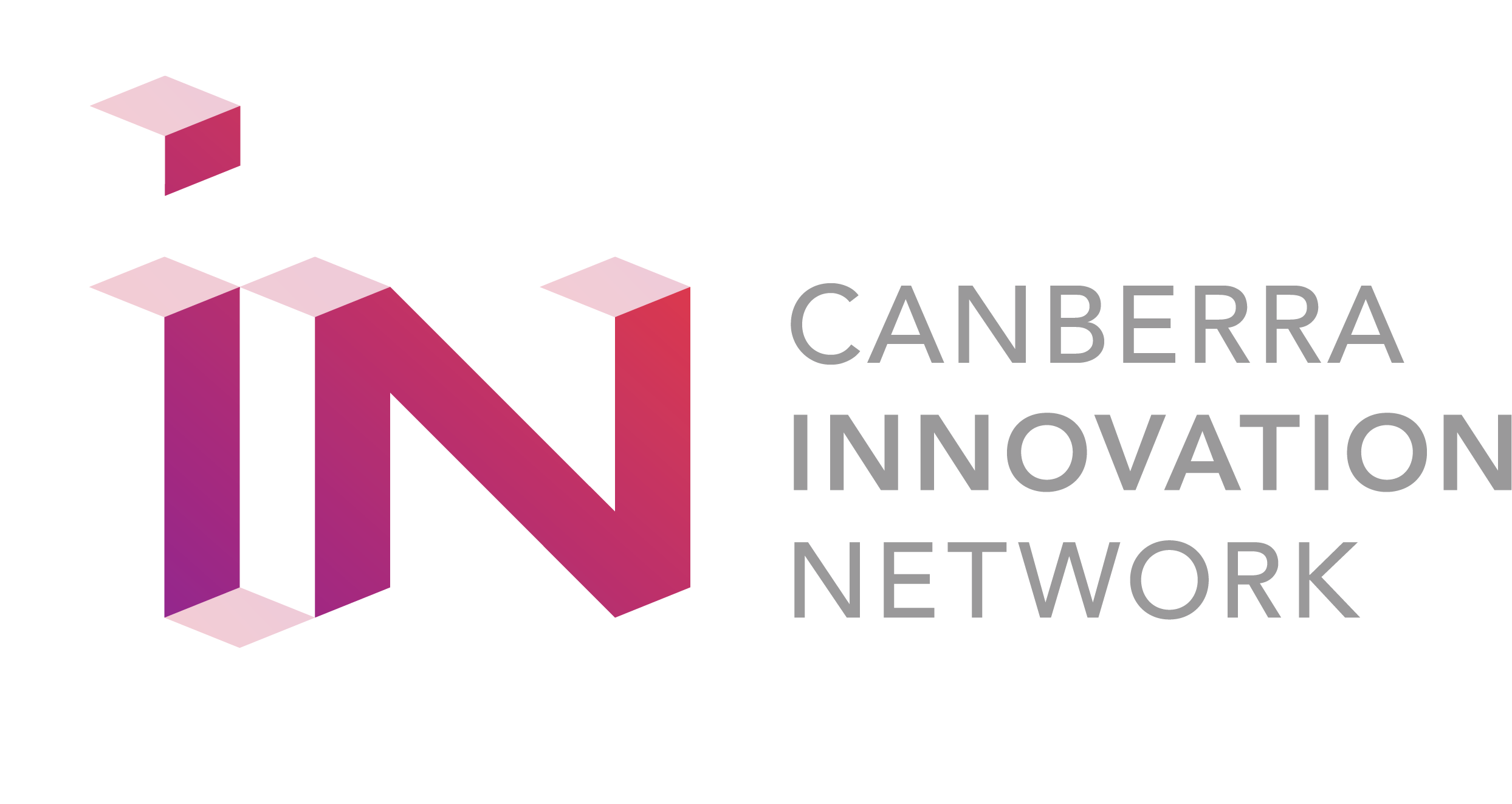- 22 April 2024
- Posted by: Laura Croft
- Categories: Feature, General News, SME, Startup Stories & Profiles

As the ACT moves closer to net-zero emissions by 2045, we sat down with Ben Wilkinson, Syenta’s Chief Technology Officer, to discuss his thoughts on the Energy Innovation Fund and Canberra’s role as the innovation capital.
Syenta is an innovative Canberra-based company developing manufacturing equipment for metallisation, the process of adding very small metal wires to electronics.
“Our method, developed at ANU, not only enhances the performance of solar cells but also reduces costs by substituting expensive silver with more affordable and sustainable copper”, explains Ben.
With innovation and sustainability at the forefront, the process is environmentally friendly, offering a reversible solution for recycling metals from solar cells.
To help advance additive manufacturing techniques , which integrate machinery, computers, numerical control, and materials, Syenta received $254,184 from the ACT Government’s Energy Innovation Fund (The Fund).
The Energy Innovation Fund has enabled the company to improve its manufacturing processes and improve efficiency.

“With the financial support provided, we’ve developed new aspects of our technology, specifically around repeatability, recycling and fluid handling”.
“Overall, the fund has pushed us to innovate more and advance key aspects of our method, empowering us to continue pioneering sustainable solutions in manufacturing solar cells”, continues Ben.
For Syenta, it’s not just about the money. It’s about the connections.
“The fund provides not only financial support but also networking opportunities with other innovative Canberra businesses in renewable energy”.
As Syenta expands and its technology gains traction in industrial applications, the team is proud that Canberra remains the central hub, in a supportive, collaborative ecosystem.

“Canberra plays a pivotal role in our business for several reasons,” says Ben.
It is where the company started, and there were many reasons for that decision.
“…the city boasts a vibrant research and innovation ecosystem, with world-class institutions and research facilities driving technological ”.
Ben states that Canberra aligns with the company’s mission, with its commitment to sustainability and renewable energy and its provision of a supportive environment for endeavours.
The supportive environment encourages entrepreneurs to access top-tier talent, expertise, and resources, enabling innovation and developing cutting-edge solutions.
“Canberra is a great place to experiment with ideas, especially with respect to renewables: it is an early adopter city”.
With the help of funding like the Energy Innovation Fund grants, companies like Syenta can achieve development and business goals that may previously have been out of reach.
“The grants present a unique opportunity for individuals and businesses looking to drive positive change in the energy sector,” says Ben.
The Energy Innovation Fund grants are instrumental in allowing early-stage companies to get to the point of commercialisation.
“Without support like this, many of our best and brightest ideas would never get their start”, continues Ben.
When asked what advice Ben would give to those in a similar position, Ben encourages those in business to take advantage of experts with world-class experience in Canberra.
“Apply for the Energy Innovation Fund grants and stay committed to your vision. Participate in all the amazing startup communities in Canberra, especially CBRIN, and ask for introductions to people in the renewable energy space”.
Syenta is currently raising an investment round to further fuel its growth and technology development. It is also looking for people who are passionate about renewable energy to join its team. If you think you would be a suitable investor or employee, reach out to the Syenta team!
The Energy Innovation Fund is offering up to $17 million in grants over 5 years to support innovation in energy transition across business, policy and ecosystem development.
The first assessment deadline is Tuesday 30 April 2024. Apply now!

